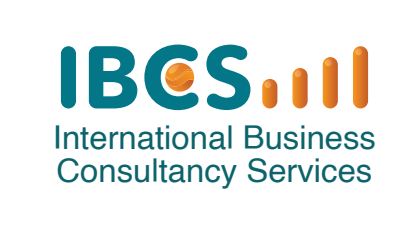
Innovating with ISO: Enhancing Standards for a Dynamic World
Introduction
In today’s rapidly evolving global landscape, innovation is key to staying ahead. The International Organization for Standardization (ISO) recognizes the need for standards that not only ensure quality and efficiency but also foster innovation and adaptability. Our approach to ISO standards embraces innovation as a core principle, driving continuous improvement and forward-thinking solutions across industries.
Reimagining ISO Standards
ISO Certification in Kolkata standards are no longer just about meeting baseline requirements; they’re about sparking creativity and driving meaningful change. We’re reimagining ISO standards to be dynamic frameworks that inspire innovation and agility. By incorporating principles such as design thinking, open innovation, and co-creation, we’re transforming standards into catalysts for progress.
Collaborative Standardization
Innovation thrives in collaborative ecosystems. ISO is championing collaborative standardization, bringing together diverse stakeholders, from industry leaders and entrepreneurs to researchers and policymakers. Through crowdsourced input and participatory design workshops, we’re co-creating standards that reflect the collective wisdom and expertise of the global community.
Agile Certification Processes
Traditional certification processes can be lengthy and rigid. We’re revolutionizing ISO certification with agile methodologies, streamlining processes, and leveraging technology for faster, more responsive certification. Our online platforms provide real-time insights, enabling organizations to track their progress, identify opportunities for improvement, and achieve certification with speed and efficiency.
Future-Proofing with Innovation
Innovation is the cornerstone of future-proofing. ISO standards are designed to evolve alongside emerging technologies and trends, ensuring relevance and applicability in a rapidly changing world. Through proactive monitoring and regular updates, we’re
committed to keeping ISO standards at the forefront of innovation, empowering organizations to adapt, thrive, and lead in dynamic markets.
Harnessing Technology
Technology is revolutionizing how we approach standards. From artificial intelligence and blockchain to the Internet of Things (IoT) and big data analytics, we’re harnessing cutting-edge technologies to enhance ISO standards. Digital platforms offer new possibilities for data-driven insights, real-time collaboration, and automated compliance monitoring, revolutionizing the way organizations manage quality, safety, and sustainability.
Empowering Creativity
Creativity is the engine of innovation. ISO is fostering a culture of creativity and experimentation, encouraging organizations to think outside the box and push the boundaries of what’s possible. Our innovation labs and incubation programs provide a space for exploration, prototyping, and piloting new ideas, driving breakthroughs that redefine industry norms and pave the way for a brighter future.
Conclusion
Innovation is not just a buzzword; it’s a mindset, a philosophy, and a strategic imperative. By infusing innovation into ISO standards, we’re not only raising the bar for quality and performance but also unlocking new opportunities for growth, differentiation, and sustainable development. Together, let’s embrace the power of innovation to shape a world where excellence knows no bounds.
Join the Innovation Revolution with ISO. Together, We’re Building a Better Future.
ISO certification covers various aspects of quality management, environmental management, information security, occupational health and safety, energy management, and more. Here are some common types of ISO certification:
- ISO 9001: Quality Management System (QMS):
IISO 9001 delineates the parameters for a quality management system and stands as the most universally acknowledged standard within the ISO 9000 series. It aids organizations in showcasing their capacity to reliably deliver goods and services that align with customer and regulatory demands.
2. ISO 14001: Environmental Management System (EMS):
ISO 50001 outlines prerequisites for initiating, executing, sustaining, and enhancing an energy management framework. It enables businesses to reduce their environmental impact and comply with environmental regulations.
3. ISO 27001: Information Security Management System (ISMS):
ISO 27001 establishes requirements for implementing, maintaining, and continually improving an information security management system.
4. ISO 45001: Occupational Health and Safety Management System (OHSMS):
ISO 45001 outlines requirements for an occupational health and safety management system, providing a framework for organizations to improve employee safety, reduce workplace risks, and enhance health and well-being.
6. ISO 50001: Energy Management System (EnMS):
ISO 50001 specifies requirements for establishing, implementing, maintaining, and improving an energy management system. It helps organizations improve energy efficiency, reduce energy costs, and minimize environmental impact related to energy consumption.
7. ISO 22000: Food Safety Management System (FSMS):
ISO 22000 sets out requirements for a food safety management system, addressing all aspects of food safety throughout the food chain. It helps organizations ensure the safety of food products, prevent foodborne illnesses, and comply with regulatory requirements.
8. ISO 13485: Medical Devices Quality Management System (MDQMS):
ISO 13485 specifies requirements for a quality management system for medical devices, including design, development, production, storage, distribution, and servicing. It helps medical device manufacturers ensure product safety and regulatory compliance.
9. ISO 9001 for Small Businesses:
ISO 9001 can be tailored to suit the needs of small businesses through simplified documentation and implementation processes. It enables small businesses to improve their quality management practices and compete effectively in the marketplace.
Industry-Specific Certifications:
ISO standards also exist for specific industries, such as automotive (e.g., ISO/TS 16949), aerospace (e.g., AS9100), and healthcare (e.g., ISO 13485). These standards provide industry-specific requirements and guidelines for quality management.
Customized Certifications:
Organizations may also seek customized ISO certifications tailored to their specific requirements or industry sector. These certifications are often based on a combination of ISO standards and additional industry-specific criteria.
These are just a few examples of the many types of ISO certification available. The choice of certification depends on the nature of the organization, its industry sector, regulatory requirements, and strategic objectives.
Call Our Consultant at 9832117700/9749373200
